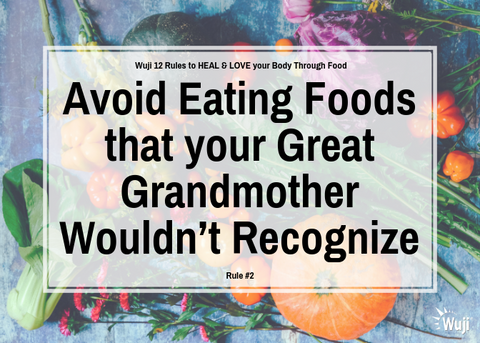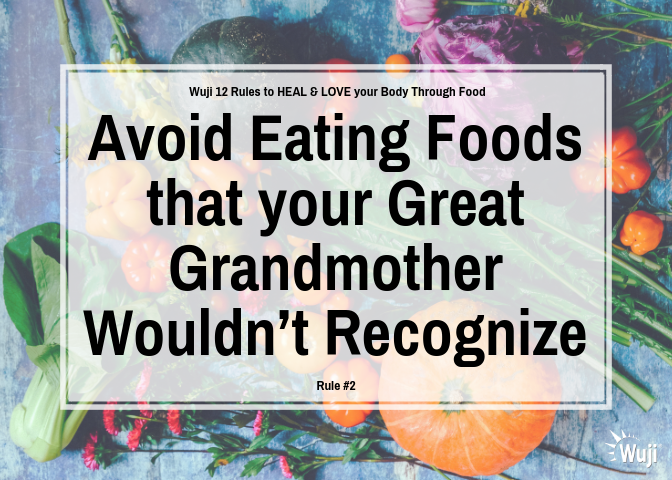
Do you have a cherished recipe that has been passed down for generations? You know the one, every time you make it your kids all swear it’s their favorite meal, your spouse complements you, your friends and family fight over the leftovers. You may have spent time with your grandma in the kitchen learning how to master her recipe and the magic of how she made it. The phrase “grandma cooking” has been coined as the thrifty, delicious, seasonal, and intuitive cooking that nourishes our bodies, and hits the spot without being overly indulgent.
Food experts like Samin Nosrat, author of Salt, Fat, Acid, Heat: Mastering the Art of Good cooking, and Michael Pollan, author of Cooked: A Natural History of Transformation, say that embracing “grandma cooking” has a larger importance that goes beyond the nostalgia of the meal. Generations of grandparents, literally cooked from scratch; slaughtering and plucking chickens for soup, growing the tomatoes, onions and garlic for sauce. They got together with their neighbors, making large batches of dumplings or cookies for their communities. By doing this, they not only fueled their bodies with food that nourished them but they also gained wisdom and skills that have been passed down through each generation.
Our conventional food system is now using technology and lab made ingredients to feed us. More than ever, we are now relying on canned convenience food, microwaveable meals and “instant” food; losing touch with cooking’s cultural, communal, familial and ecological significances. Beyond that, we are now producing food that is to some, increasingly tasty, but in actuality, decreasingly nutritious. According to a study published in Nature, this is leading to a generation of malnourished people and an epidemic of disease—not just in America, but in many first-world countries. While many Americans are eating more than enough calories, we are simultaneously starving ourselves of actual, vital nutrients. We’ve began replacing whole food nutrition with gummy vitamins, and Gender only supplements.
Mike Fenster, M.D., an interventional cardiologist, chef, and author of The Fallacy of the Calorie: Why the Modern Western Diet is Killing Us and How to Stop It said that "these dietary choices directly disrupt our metabolism—in particular, our individual gut microbiomes—and produce a wide range of disabilities and diseases." Fenster goes on to say that “for starters, this type of diet disrupts the natural sodium-potassium ratio in the body, which is a factor in heart disease. But one of the worst culprits of malnutrition is the lack of fiber in the modern diet. Not only does soluble and insoluble fiber keep us from overeating but, even more important, it's the food eaten by good bacteria that live in our gut.” According to a 2013 study published in Therapeutic Advances in Gastroenterology, having the right balance of healthy gut bacteria builds up the immune system, prevents inflammation, improves mood, protects the heart, and is essential to maintaining a healthy weight. Without enough fiber, the good bacteria in our gut can't survive.
Contrary to popular belief, the best sources of dietary fiber are not in processed "fiber bars," but rather a wide range of plant-based foods. In a new survey conducted by the NIH, researchers found that most people don't realize how much and how quickly this shift in diet affects our health. An alarming 87 percent of Americans don't eat enough fruit and 91 percent of us skip vegetables all together.
So what can we do? It’s not realistic for someone living in the heart of New York City to grow tomatoes in their apartment, how do we merge the idea of “grandma cooking” with the fast pace lifestyle of modern society and what is available to us?
- Make an effort to buy real food that goes bad.
- Buy produce from an organic market or farm.
- Buy meat from a farm that feeds and treats their animals humanly.
- Make an effort to eat home cooked meals.
- Use the convenience of modern technology, like an instapot or crockpot, to save on time when your lifestyle keeps you moving but still allowing you to cook like grandma.
- Get your family and kids involved.
- Start a small garden in your backyard or community garden space.
- Educate yourself on seasonal produce and try to eat only in season food.
- Take a day out of every week or month to meal prep. Keep things in the freezer until you’re ready to eat it.
- Eat Chlorella and Spirulina daily! Both are whole foods, full of minerals and nutrients, contain almost all the essential amino acids our bodies need, and are pre-biotics that feed your good gut bacteria!
Most importantly, GET YOUR FAMILY INVOLVED. Good food relationships are taught and made into habit. You can continue passing down modern “grandma cooking” to your kids and their kids, and their kids, and their kids.
“Let food be thy medicine and medicine be thy food” -- Hippocrates


1 comment
Gracias